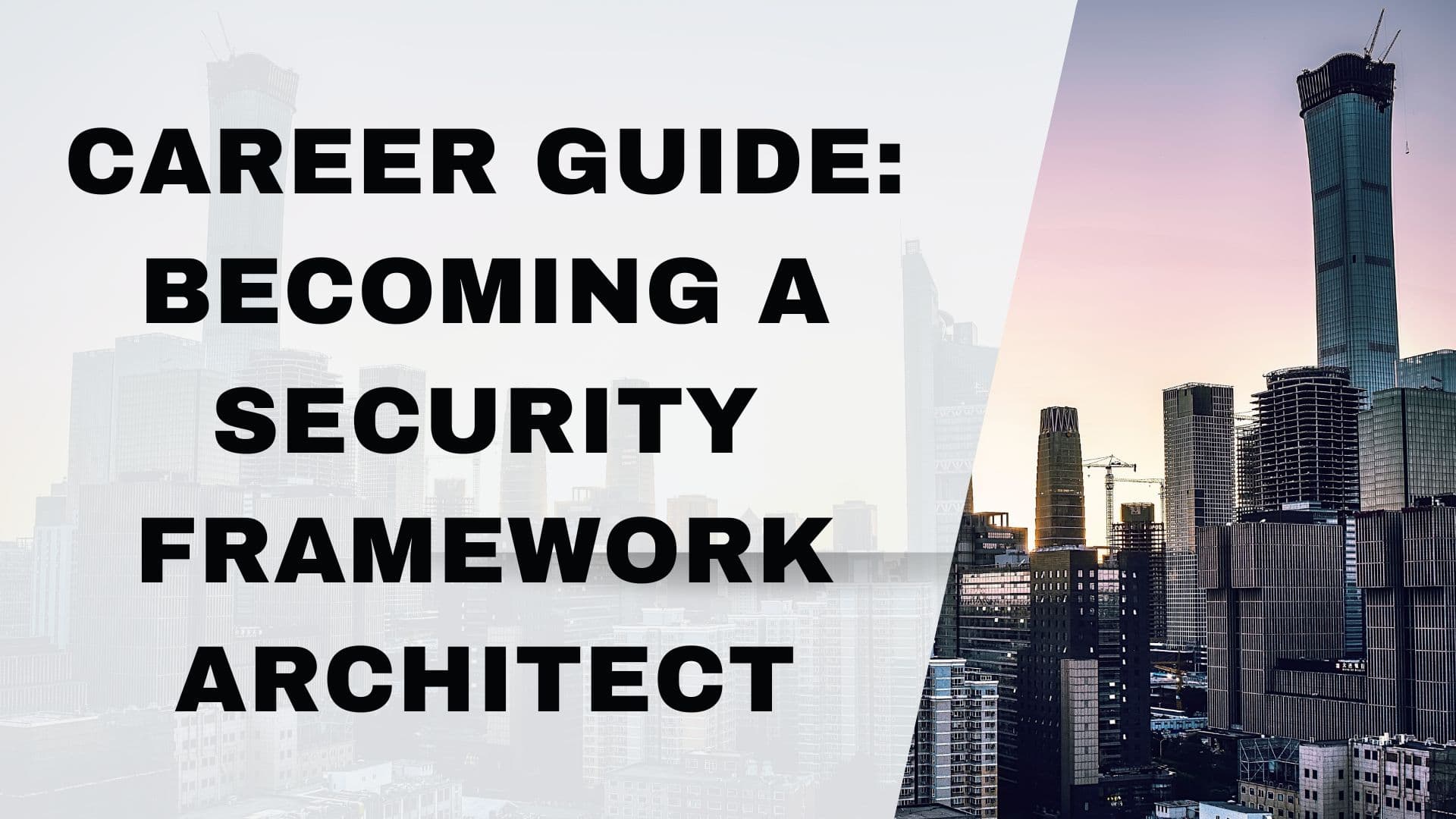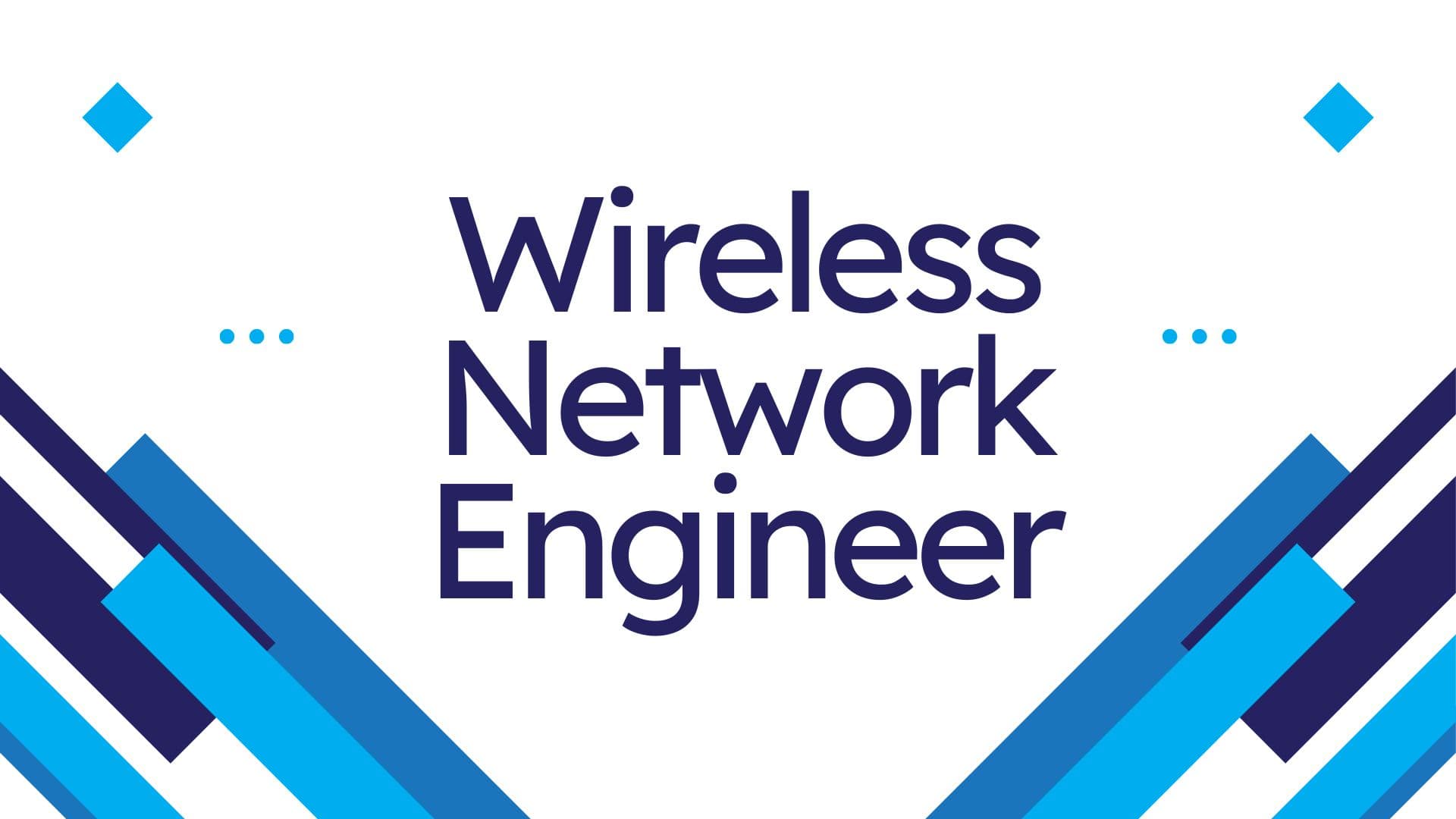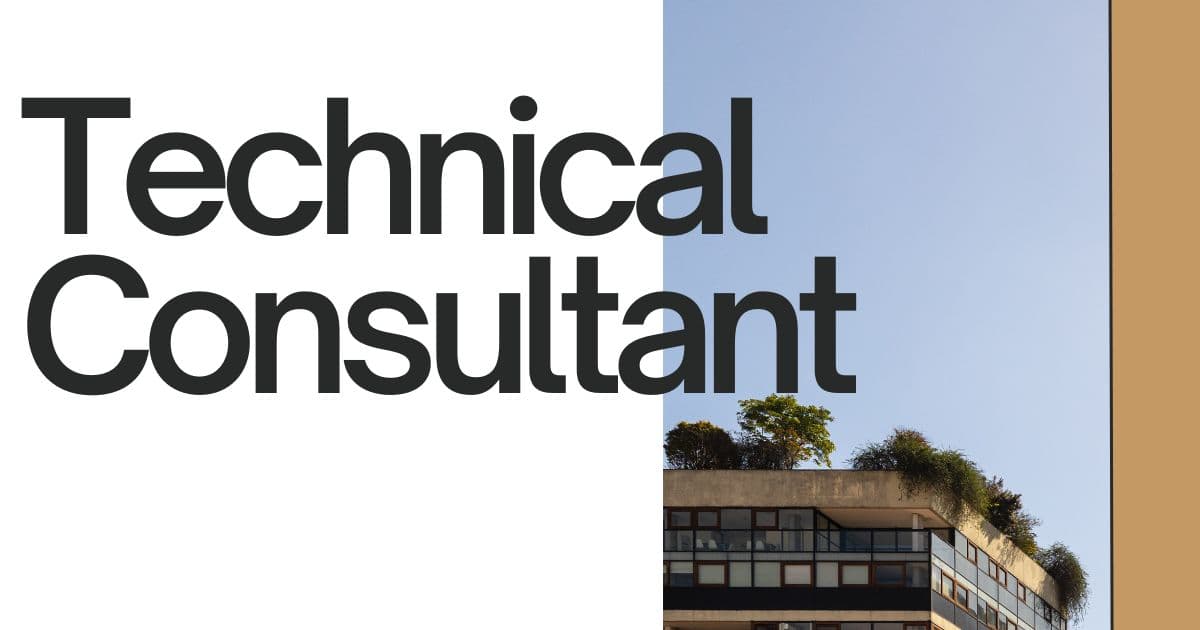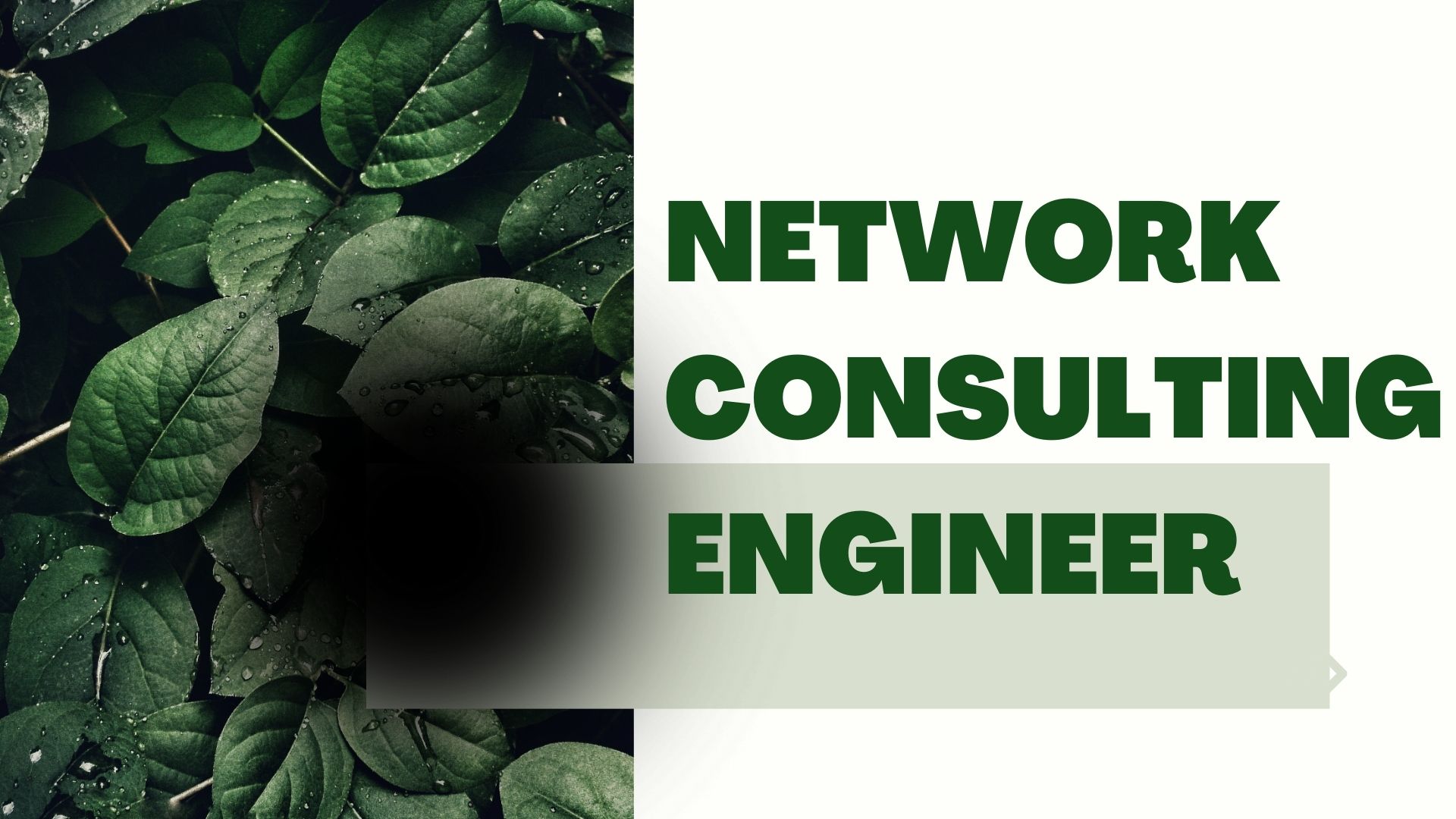TRUSTED BY THE SMARTEST TEAMS IN THE WORLD FOR CERTIFIED CANDIDATES
SPOTO Blogs
Useful learning materials to become certified IT personnel
-
- 822
- SPOTO
- 2025-05-16 11:17
-
- 790
- SPOTO
- 2025-05-15 11:45
-
- 1020
- SPOTO
- 2025-05-15 11:19
-
- 1331
- SPOTO
- 2025-05-14 11:15
-
- 1077
- SPOTO
- 2025-05-14 10:44
-
- 1156
- SPOTO
- 2025-05-13 11:05
-
- 1211
- SPOTO
- 2025-05-13 10:38
-
- 951
- SPOTO
- 2025-05-09 11:39
-
- 1387
- SPOTO
- 2025-05-08 10:56
TRUSTED BY THE SMARTEST TEAMS IN THE WORLD FOR CERTIFIED CANDIDATES
SPOTO Blogs
Useful learning materials to become certified IT personnel
-
- 822
- SPOTO
- 2025-05-16 11:17
Table of Contents1. What is a Cloud Engineer?2. What does a Cloud Engineer do?3. Career Insights: Salary, Outlook & Related Roles4. What Are the Qualifications to Become a Cloud Engineer?5. Summarize 1. What is a Cloud Engineer? Cloud Engineer is responsible for connecting the existing enterprise LAN with the network architecture of emerging private and public cloud implementations. As enterprises increasingly migrate their businesses to the cloud, cloud network engineers are responsible for the implementation, configuration, maintenance and support of cloud networks and various other cloud services. 2. What does a Cloud Engineer do? Cloud Engineers need to have a comprehensive understanding of network technology, including key concepts such as local area network (LAN), wide area network (WAN), virtual private cloud (VPC), intranet and extranet, and master core skills such as routing, switching, firewall, load balancing, and network monitoring and management. In addition, they need to be able to analyze, build, test and optimize enterprise network architectures on mainstream cloud platforms (such as AWS, Google Cloud, and Azure). In actual work, this role usually collaborates with internal cloud users (such as department heads or application development teams) to promote the deployment, optimization, and continuous operation and maintenance of cloud networks. This usually involves standardizing and repeating network design through automated tools to improve efficiency and consistency. In addition, they are also responsible for upgrading, maintaining, and patching the network infrastructure that private or hybrid cloud environments rely on, ensuring that the architecture design meets corporate standards in terms of network security and compliance. In a multi-cloud or hybrid cloud environment, Cloud Network Engineers may also need to perform network integration tasks, such as interconnecting private clouds with AWS. At the same time, this position also bears the responsibility of monitoring cloud network performance, resource utilization, and availability, and formulating network optimization and expansion plans when necessary. Work with other technical teams (such as architects, operations engineers, and IT support) to develop audit standards, operating procedures, training materials, and technical documentation to ensure the stable operation of the cloud network. Finally, Cloud Engineers also need to deal with network troubleshooting and repair, involving disaster recovery scenarios, and may need to participate in shift duty to ensure that the cloud network environment is available 24/7. 3. Career Insights: Salary, Outlook & Related Roles (1) Cloud Engineer Salary According to ZipRecruiter on May 8, 2026, the average annual salary for a cloud engineer in the United States is $109,040. That's about $52.42 per hour. That's equivalent to $2,096 per week or $9,086 per month. Annual salaries can be as high as $158,000 and as low as $31,000, but most cloud network engineers currently make between $89,000 and $133,500, with the highest earners making as much as $143,000 per year across the United States. The average salary range for a cloud network engineer varies greatly, which means there may be many opportunities for advancement and pay increases based on skill level, location, and years of experience. (2) Job Outlook of Cloud Engineer According to relevant data, it is expected to grow significantly in the next few years. The increasing adoption of cloud computing by enterprises around the world has driven the demand for skilled professionals who can design, implement and manage complex cloud networks. The employment outlook for cloud network engineers is very strong. This career path offers attractive salaries, various specialization opportunities, and the opportunity to continue learning as technology develops. (3) Similar Occupations Network Engineer (Traditional / Enterprise) Cloud Infrastructure Engineer DevOps Engineer Cloud Security Engineer Site Reliability Engineer (SRE) Network Automation Engineer Solutions Architect (Cloud or Network Focus) 4. What Are the Qualifications to Become a Cloud Engineer? (1) Obtain a Bachelor's Degree This career requires job seekers to have a bachelor's degree in computer science, information technology, or a related field. (2) Develop professional skills After analyzing 120,916 job openings related to cloud engineers, it was found that network engineering is the most popular professional ability among employers, with about 34% of positions requiring this skill. In addition, network routing, automation technology, computer science foundation, firewall configuration, and switch management are also popular. In terms of general skills, troubleshooting ability is the skill that appears most frequently in recruitment information, followed by communication and coordination, system operation and maintenance, project management, problem solving, and planning ability. (3) Earn Industry Certifications When applying for infrastructure engineer positions, it is helpful to obtain certain certifications as they can help you develop the key skills and knowledge required for the position and make your resume more noticeable to employers.Some employers prefer to hire candidates with experience in sales or a related technical field, such as engineering or IT strategy.CCIE Enterprise Infrastructure certification demonstrates your proficiency in complex enterprise infrastructure solutions, from design and deployment to operations and optimization. Earn Cisco Certified Internetwork Expert (CCIE) Enterprise Infrastructure certification and become a Cloud Engineer. 5. Summarize Cloud engineers play a key role in building and maintaining cloud-based network systems. Their responsibilities span design, security, automation, and performance monitoring. With high demand, competitive salaries, and an evolving technology landscape, this career offers long-term opportunities for professionals with the right education, skills, and certifications. -
- 790
- SPOTO
- 2025-05-15 11:45
Table of Contents1. What is a SOC Analyst?2. What does a SOC Analyst do?3. Career Insights: Salary, Outlook & Related Roles4. What Are the Qualifications to Become a SOC Analyst? 1. What is a SOC Analyst? A SOC Analyst (Security Operations Center Analyst) is a cybersecurity professional whose primary responsibility is to monitor, detect, analyze, and respond to security incidents in an organization. SOC analysts are responsible for discovering and responding to potential cyberattacks and data breach threats. 2. What does a SOC Analyst do? SOC analysts play a vital role in the cybersecurity of an organization. First, they continuously analyze log data from various devices and systems, including endpoints (such as laptops, mobile phones, IoT devices) and network resources (such as routers, firewalls, IDS, applications, and email gateways) through active monitoring to identify potential threats. This threat monitoring process is usually also supported by artificial intelligence tools and the cooperation of other IT departments (such as the service desk). Secondly, in addition to threat detection, SOC is also responsible for incident response and recovery. After a security incident occurs, resources are quickly organized to deal with it, mitigate the impact and maintain the operation of the organization, such as responding to emergencies such as malware or ransomware attacks. The SOC team also needs to carry out vulnerability repair work based on log and intelligence data, and make recommendations such as network segmentation, security policy optimization, or system patches to continuously improve the overall defense capabilities of the organization. In addition, compliance management is also an important responsibility of SOC. They help enterprises meet the requirements of international security standards such as ISO 27001, NIST CSF, and GDPR. Finally, SOC members integrate information resources from multiple parties to build a global perspective on network activities, promote the organization to form a clear security narrative, and further guide the development of future cybersecurity strategies and policies. 3. Career Insights: Salary, Outlook & Related Roles (1) SOC Analyst Salary According to data from Indeed on May 3, 2026, the average annual salary for social analysts in the United States is $94,755 (2) Job Outlook of SOC Analyst Although the U.S. Bureau of Labor has not conducted a specific analysis of the Job Outlook of SOC Analyst, the similar job outlook for information security analysts can provide a reference for this. From 2023 to 2033, the number of information security analysts is expected to grow by 33%, which is much faster than the average growth rate for all occupations. It is expected that there will be an average of 17,300 vacancies per year for information security analyst positions over the next decade. Many of these vacancies are expected to be filled by those who change careers or exit the labor market (such as retirement). (3) Similar Occupations Cybersecurity Analyst Information Security Analyst Incident Response Analyst / Specialist Threat Intelligence Analyst Security Engineer Network Security Analyst Digital Forensics Analyst Penetration Tester (Ethical Hacker) Compliance Analyst / GRC Specialist 4. What Are the Qualifications to Become a SOC Analyst? (1) Obtain a Bachelor's Degree To become a SOC analyst, you usually need a bachelor's degree in computer science, cybersecurity, information technology, or computer engineering, among which computer science is the most common and most popular major among employers. (2) Develop professional skills To become a qualified SOC analyst, you need to have many technical capabilities. First, you need to be able to understand the behavioral characteristics of terminal devices (such as servers, workstations, and mobile devices) and how they may be controlled or exploited. This knowledge can usually be obtained through basic certifications such as CompTIA A+. Secondly, you need to master the communication protocols in network and cloud environments and how they are abused, and understand the operating mechanisms of various resources in traditional IT architectures and cloud platforms. Relevant certifications include CompTIA Network+, Cloud+, Linux+, and Server+. In terms of security incident analysis, it is also very important to have the actual ability to identify system vulnerabilities and attack behaviors. CompTIA Security+ is an important certification for entry. Further ability requirements include analyzing the tactics, techniques, and procedures (TTPs) of attackers, and identifying intrusion indicators (IoCs), which helps to accurately determine the source and means of threats. To this end, you can take more advanced certifications such as CySA+ or PenTest+. Finally, SOC analysts also need to have the ability to track the entire attack path, understand the various actions taken by attackers throughout the intrusion process, and be familiar with mainstream attack analysis frameworks such as Cyber ​​Kill Chain, MITRE ATT\&CK, and the Diamond Model, so as to respond to security threats more systematically. Through the systematic training and certification accumulation of these skills, professional competitiveness in the field of network security can be significantly improved. (3) Earn Industry Certifications When applying for infrastructure engineer positions, it is helpful to obtain certain certifications as they can help you develop the key skills and knowledge required for the position and make your resume more noticeable to employers.Some employers prefer to hire candidates with experience in sales or a related technical field, such as IT or computer science.CCIE Security certification demonstrates your mastery of planning, design, deployment, operation, and optimization of complex enterprise security network solutions. With the Cisco Certified Internetwork Expert (CCIE) Security certification, you can boost your career as a security architect. -
- 1020
- SPOTO
- 2025-05-15 11:19
Table of Contents1. What is a Security Architect ?2. What does a Security Architect do?3. Career Insights: Salary, Outlook & Related Roles4. What Are the Qualifications to Become a Security Architect? A security architect is a senior information technology professional responsible for planning, implementing, and overseeing computer and network security systems.This article will introduce you to what a Security Architect is, the career information and prospects of a Security Architect, and the necessary conditions to become a Security Architect. 1. What is a Security Architect ? A security architect is a senior information technology professional responsible for planning, implementing, and overseeing computer and network security systems. 2. What does a Security Architect do? The daily responsibilities of a security architect vary depending on the industry and size of the company. The main work content includes developing and optimizing the overall security plan of the organization, planning the procurement budget of security-related software and hardware, promoting security construction projects, developing and supervising security testing processes (such as vulnerability assessment and penetration testing), conducting regular threat intelligence analysis, leading the network security team, and ensuring that the company's security practices comply with relevant legal and compliance requirements. 3. Career Insights: Salary, Outlook & Related Roles (1) Security Architect Salary According to Glassdoor, the estimated total salary for security architects is $221,719 per year, with an average salary of $163,953 per year. The estimated additional salary is $57,766 per year. In some cases, an entry-level architect may make around $79,000 per year, while an experienced professional may make closer to $140,000 per year. Some security architects may also receive bonuses, commissions, or profit sharing. (2) Job Outlook of Security Architect As cyber threats continue to change in form and severity, fighting hackers, defending against viruses, and detecting vulnerabilities are all part of cybersecurity. According to the U.S. Bureau of Labor Statistics (BLS), employment of computer network architects is expected to grow by 5% between 2020 and 2030. (3) Similar Occupations Security Engineer Information Security Specialist Cyber Security Analyst Chief Information Security Officer (CISO) Information Security Manager Information Security Engineer Cybersecurity Analyst Cloud Security Architect / Engineer SOC Analyst 4. What Are the Qualifications to Become a Security Architect? (1) Obtain a Bachelor's Degree When companies or organizations are looking to hire web developers, they often require a bachelor's degree in computer science, computer engineering, or a related field. In addition, a master's degree in a field such as computer science is more likely to be favored by employers when applying for a job. (2) Develop professional skills The skills required by security architects are mainly skills that serve enterprise security operations. First of all, security architects need to understand the best practices for maintaining cloud environment security. Balance business needs and security needs to ensure that the organization's network is secure and functioning properly. Secondly, being proficient or even proficient in software development and DevSecOps, and the ability to write code in Python or PowerShell to automate tasks can help you improve your work efficiency. Furthermore, manage identity and access management of enterprise network systems and databases, protect data from unauthorized access, and ensure that people who need data can access the data. Finally, you need to master Linux, Windows, and Mac operating systems to solve security issues unique to each operating system. (3) Earn Industry Certifications When applying for infrastructure engineer positions, it is helpful to obtain certain certifications as they can help you develop the key skills and knowledge required for the position and make your resume more noticeable to employers.Some employers prefer to hire candidates with experience in sales or a related technical field, such as engineering or computer science. CCIE Security certification demonstrates your mastery of planning, design, deployment, operation, and optimization of complex enterprise security network solutions. With the Cisco Certified Internetwork Expert (CCIE) Security certification, you can boost your career as a security architect. -
- 1331
- SPOTO
- 2025-05-14 11:15
Table of Contents1. What is a Wireless Network Engineer ?2. What does a Wireless Network Engineer do?3. Career Insights: Salary, Outlook & Related Roles4. What Are the Qualifications to Become a Wireless Network Engineer?5. Summarize Wireless network engineers are responsible for designing, building, maintaining and optimizing wireless networks and wireless network infrastructure for an enterprise or organization, and for resolving wireless network problems that may arise and have already occurred.This article will explore career opportunities for Wireless Network Engineers, including salary and career prospects. 1. What is a Wireless Network Engineer ? Wireless network engineers are responsible for designing, building, maintaining and optimizing wireless networks and wireless network infrastructure for an enterprise or organization, and for resolving wireless network problems that may arise and have already occurred. 2. What does a Wireless Network Engineer do? Wireless network engineers are responsible for designing, deploying, managing, and optimizing wireless network systems to ensure efficient, secure, and stable network operation. First, they use a variety of tools and techniques, such as network performance indicators, network scanning tools, SNMP, traffic analyzers, packet sniffers, and wireless site surveys to test, evaluate, and troubleshoot network problems, and model network designs through simulations before deployment. Second, wireless network engineers need to work closely with vendors, enterprise managers, and other network engineers to participate in the planning and improvement of the network from project initiation to implementation to ensure that the business needs of customers are met. Third, they are also responsible for configuring and managing various network devices, such as routers, switches, and firewall devices (such as Palo Alto, Juniper, and Cisco ASA). In addition, engineers also need to have RF (radio frequency) link design and verification capabilities, be able to support the construction and optimization of WLAN and other wireless networks, and test and tune network equipment to achieve real-time monitoring and optimization of network performance. In addition, they are also required to write technical documentation, train other employees, and develop data backup and recovery strategies to ensure data integrity and reliability. 3. Career Insights: Salary, Outlook & Related Roles (1) Wireless Network Engineer Salary According to data from the ZipRecruiter website on May 6, 2026, the average annual salary for wireless engineers in California is $127,815. About $61.45 per hour. This is equivalent to $2,457 per week or $10,651 per month. The highest annual salary is $245,740 and the lowest is $72,044, but most wireless engineers currently earn between $101,700 and $132,700, with the highest earners earning $177,149 per year in California. (2) Job Outlook of Wireless Network Engineer The job outlook for wireless network engineers is generally optimistic, with strong employment prospects. According to the U.S. Bureau of Labor Statistics, employment for this position is expected to grow 5% between 2019 and 2029, which is faster than the average for most occupations. As wireless technology becomes more popular and companies become more dependent on mobile devices and cloud computing, the demand for wireless network engineers is steadily increasing to support the planning, deployment, and maintenance of these systems. (3) Similar Occupations Network Engineer Network Administrator Wireless Communications Engineer Systems Engineer Telecommunications Engineer Radio Frequency (RF) Engineer Cloud Network Engineer Cybersecurity Engineer 4. What Are the Qualifications to Become a Wireless Network Engineer? (1) Obtain a Bachelor's Degree Wireless Network Engineer should have at least a bachelor's degree in IT or Electrical Engineering or another related field with similar skills and internship experience. Some companies prefer a master's degree in science. (2) Develop professional skills Wireless network engineers usually need to have a solid foundation in wireless network technology, including an in-depth understanding of radio frequency (RF), digital communication systems, antenna design, and signal propagation principles, and the ability to use programming languages ​​​​such as C/C++, Java, and MATLAB. In addition, they should be proficient in using wireless network troubleshooting tools such as spectrum analyzers and signal generators. Finally, wireless network engineers also need to have good analytical thinking, rigorous detail processing capabilities, and excellent problem-solving skills. At the same time, good teamwork skills are also an indispensable quality for them in cross-departmental collaboration. (3) Earn Industry Certifications When applying for Wireless Network Engineer positions, it is helpful to obtain certain certifications as they can help you develop the key skills and knowledge required for the position and make your resume more noticeable to employers.Some employers prefer to hire candidates with experience in sales or a related technical field, such as computer science.CCIE Enterprise Wireless certification validates your knowledge of planning, designing, implementing, operating, and optimizing complex enterprise wireless networks. Earn the Cisco Certified Internetwork Expert (CCIE) Enterprise Wireless certification to help you become a Wireless Network Engineer. 5. Summarize Wireless network engineers are responsible for designing, building, maintaining and optimizing wireless networks and wireless network infrastructure for an enterprise or organization, and for resolving wireless network problems that may arise and have already occurred.They should have at least a bachelor's degree in IT or Electrical Engineering or another related field with similar skills and internship experience. Some companies prefer a master's degree in science. At the same time, it is also extremely important to have corresponding professional skills certification and practical experience, such as internship experience and CCIE Enterprise Wireless certification certification. -
- 1077
- SPOTO
- 2025-05-14 10:44
Table of Contents1. What is a Wireless Consultant ?2. What does a Wireless Consultant do?3. Career Insights: Salary, Outlook & Related Roles4. What Are the Qualifications to Become a Wireless Consultant?5. Summarize 1. What is a Wireless Consultant ? Wireless consultants provide customers with professional advice and guidance on a range of wireless technology products and services. They are responsible for helping customers choose the right equipment and packages based on their needs and providing customers with wireless technology solutions. 2. What does a Wireless Consultant do? Wireless Consultant covers multiple areas of responsibilities, including managing the presentation and sales of new devices, achieving sales targets, and communicating effectively with customers to maintain good relationships. In addition, he is involved in the internal process of adding new users in the AirWatch MDM system, as well as configuring and troubleshooting SOTI MDM solutions and various mobile devices (such as smartphones and tablets). On the technical side, he uses HTML/DHTML, CSS, and JavaScript to develop interactive user interfaces, and leads the project to migrate desktop services to the iOS mobile platform. On the customer support side, he interacts with customers, sells mobile devices and their accessories, regularly organizes smartphone usage workshops as part of customer service, and provides remote and on-site technical support to end users of other affiliated companies. In addition, he assists managers in business operations, including inventory management, POS system operation, and provides advice to the payroll team on expatriate employee compensation and taxation. 3. Career Insights: Salary, Outlook & Related Roles (1) Wireless Consultant Salary According to data from ZipRecruiter on May 6, 2026, the average hourly wage for wireless consultants in the United States is $15.42, with hourly wages as high as $24.52 and as low as $9.62, but most wireless consultants in the United States currently earn between $12.50 and $16.35 per hour. The average salary range for wireless consultants varies widely (up to 3 times), which means they may have many opportunities for advancement and pay increases based on skill level, location, and years of experience. (2) Job Outlook of Wireless Consultant According to Zippia's statistics and forecasts, the number of wireless consultant positions in the United States will increase by about 1,900 in the next ten years. In addition, the average salary for this position has increased by about 19% in the past five years. Currently, there are about 167,638 wireless consultant-related job vacancies waiting to be filled in the US market. (3) Similar Occupations Network Engineer Network Administrator Solutions Architect System Engineer Wireless Engineer (Senior) Business Consultants Management Consultants IT Consultants 4. What Are the Qualifications to Become a Wireless Consultant? (1) Obtain a Bachelor's Degree The first requirement to become a wireless consultant is a bachelor's degree in computer science, engineering or telecommunications. Of course, higher education and more internship experience can also add points in job hunting. (2) Develop professional skills Becoming a wireless consultant often requires excellent communication and interpersonal skills, experience in a client-oriented position, a deep understanding of wireless technology and products, the ability to multi-task and prioritize in a fast-paced environment, attention to detail, strong organizational skills, and the ability to work collaboratively with colleagues. (3) Earn Industry Certifications When applying for Wireless Consultant positions, it is helpful to obtain certain certifications as they can help you develop the key skills and knowledge required for the position and make your resume more noticeable to employers.Some employers prefer to hire candidates with experience in sales or a related technical field, such as computer science.CCIE Enterprise Wireless certification validates your knowledge of planning, designing, implementing, operating, and optimizing complex enterprise wireless networks. Earn the Cisco Certified Internetwork Expert (CCIE) Enterprise Wireless certification to help you become a Wireless Consultant. 5. Summarize Wireless consultants provide customers with professional advice and guidance on a range of wireless technology products and services.They usually require job seekers to have a bachelor's degree in computer science, engineering, telecommunications or a related field, and have a deep understanding of wireless basics. At the same time, it is also extremely important to have corresponding professional skills certification and practical experience, such as internship experience and CCIE Enterprise Wireless certification certification. -
- 1156
- SPOTO
- 2025-05-13 11:05
Table of Contents1. What is a Cloud Infrastructure Engineer?2. What does a Cloud Infrastructure Engineer do?3. Career Insights: Salary, Outlook & Related Roles4. What Are the Qualifications to Become a Cloud Infrastructure Engineer?5. Summarize 1. What is a Cloud Infrastructure Engineer? Cloud infrastructure engineers are IT professionals who build, oversee, and maintain cloud infrastructure. With the popularization of cloud computing technology, enterprises' demand for maintenance of cloud computing infrastructure and cloud computing talents continues to increase. 2. What does a Cloud Infrastructure Engineer do? The main responsibilities of a cloud infrastructure engineer include the following aspects: designing and integrating cloud applications; collaborating with the team to develop and maintain various applications on the cloud platform; upgrading existing cloud systems to improve operational efficiency and reduce data leakage and network security risks; promptly identifying and handling problems on the cloud platform; and providing necessary technical support to assist enterprises in achieving more innovative applications through cloud technology. 3. Career Insights: Salary, Outlook & Related Roles (1) Cloud Infrastructure Engineer Salary According to data from the ZipRecruiter website on May 5, 2026, the average annual salary for cloud infrastructure engineers in the United States is $127,066, which is about $61.09 per hour. This is equivalent to $2,443 per week or $10,588 per month. The annual salary of cloud infrastructure engineers can be as high as $182,000 and as low as $46,500, but most cloud infrastructure engineers currently have an annual salary between $107,500 and $141,000, and the highest earners have an annual salary of up to $163,000 across the United States. (2) Job Outlook of Cloud Infrastructure Engineer The U.S. Bureau of Labor Statistics (BLS) predicts that cloud computing jobs will grow by about 15% from 2021 to 2031, significantly faster than the average growth rate of most industries. The main reasons for this rapid development include the increasing number of companies turning to the cloud and the continued demand for more efficient data storage, processing and analysis solutions. (3) Similar Occupations Infrastructure Architect Solutions Architect DevOps Engineer Site Reliability Engineer (SRE) Systems Administrator Cloud Network Engineer Cloud Security Engineer Cloud Consultant Cloud Developer 4. What Are the Qualifications to Become a Cloud Infrastructure Engineer? (1) Obtain a Bachelor's Degree Cloud engineers should have at least a bachelor's degree in computer science, computer engineering, or another related field with similar skills and internship experience. Some companies prefer a master's degree in science. (2) Develop professional skills Cloud engineers should have a wide range of technical capabilities, covering operating systems, programming, networks, security and other aspects. First, it is essential to be familiar with the Linux operating system, and engineers need to understand its server architecture and daily management and maintenance; have basic skills such as database management skills, including using cloud databases and mastering technologies such as MySQL and Hadoop. Second, in terms of development capabilities, cloud engineers should have a solid programming foundation and be familiar with a variety of computer languages ​​​​such as SQL, Java, Python, Ruby, Golang, PHP and .NET. At the same time, it is also very important to understand network principles and virtual network configuration, especially when building and maintaining cloud infrastructure. Furthermore, since modern cloud engineering is often closely linked to DevOps practices, DevOps concepts and practical experience should be possessed, especially in the AWS environment, which will enhance employment competitiveness. Understand the architectural differences and service details of major cloud service providers (such as AWS, Azure, Google Cloud, etc.). Finally, cloud engineers should understand Web services and API technologies, including open standards such as XML, SOAP, WSDL and UDDI, and have relevant knowledge of API design and integration. (3) Earn Industry Certifications When applying for infrastructure engineer positions, it is helpful to obtain certain certifications as they can help you develop the key skills and knowledge required for the position and make your resume more noticeable to employers.Some employers prefer to hire candidates with experience in sales or a related technical field, such as IT strategy.CCIE Data Center certification demonstrates your advanced skills in planning, designing, deploying, operating, and optimizing complex data center networks. Boost your career as a technology consultant with the Cisco Certified Internetwork Expert (CCIE) Data Center certification. 5. Summarize Cloud infrastructure engineers are IT professionals who build, oversee, and maintain cloud infrastructure. Cloud engineers should have at least a bachelor's degree in computer science, computer engineering, or another related field with similar skills and internship experience. Some companies prefer a master's degree in science.At the same time, it is also extremely important to have corresponding professional skills certification and practical experience, such as internship experience and CCIE Data Center certification. -
- 1211
- SPOTO
- 2025-05-13 10:38
Table of Contents1. What is a Technical Consultant?2. What does a Technical Consultant do?3. Career Insights: Salary, Outlook & Related Roles4. What Are the Qualifications to Become a Technical Consultant?5. Summarize 1. What is a Technical Consultant? A technical consultant is an expert in a specific field who can provide important guidance in solving technical or network problems that may arise. As a technical consultant, you need to have knowledge about computer systems and technology so that you can answer questions, solve problems and help others at any time. 2. What does a Technical Consultant do? The responsibilities of a technical consultant involve many aspects. First, they need to understand the software systems and technical architectures used by customers or companies, and provide professional advice on related technical issues. Secondly, given that technical consultants are often involved in software development, they must have an in-depth understanding of the company's information systems to ensure that the programs they develop can run efficiently and stably to meet user needs. In addition, they should also participate in the testing process to assist the testing team in verifying whether the product functions as expected and improve the overall user experience. During the testing process, technical consultants need to identify potential problems and risks, adjust the program when necessary, and propose feasible solutions to prevent the problem from recurring. Finally, they will use business intelligence tools to analyze data to provide key support for software optimization, product iteration, and future development. 3. Career Insights: Salary, Outlook & Related Roles (1) Technical Consultant Salary According to ZipRecruiter data on May 5, 2026, the average hourly wage for technical consultants in California is $59.68. The highest salary is $88.73 and the lowest is $15.42, but most technical consultants in California currently earn between $46.01 and $71.15. According to statistics from the glassdoor website, in the Los Angeles area of ​​California, the annual salary of technical consultants is expected to be $123,532, with an average annual salary of $100,309. The above salary is for reference only. Due to differences in countries, regions and other factors, the specific salary will vary. (2) Job Outlook of Technical Consultant According to the U.S. Bureau of Labor Statistics (BLS), the technology consulting field shows good prospects for future development. The BLS predicts that from 2020 to 2030, the growth rate of computer and information technology-related jobs will reach 11%, which is significantly higher than the average level of all industries as a whole. As companies increasingly rely on technical support and expertise in the process of updating their IT systems and software, this field is expected to bring a large number of job opportunities. (3) Similar Occupations Solutions Architect Software Engineer Systems Engineer Business Analyst IT Consultant Solutions Architect Solution Engineer Network Engineer Network Consultant Cloud Consultant Cloud Engineer 4. What Are the Qualifications to Become a Technical Consultant? (1) Obtain a Bachelor's Degree When companies or organizations hire web developers, they usually require job seekers to have a bachelor's degree in information technology, computer science, or a related field. In addition, job seekers with a master's degree or career-related certifications are more likely to be favored by employers in their job search. (2) Develop professional skills First of all, Technical Consultants need to have a comprehensive skill level that combines technical expertise with business understanding. They should be familiar with various operating systems, network architectures, and cloud platforms (such as AWS, Azure, Oracle Cloud), and be able to use network tools such as Terraform or Ansible for infrastructure automation. At the same time, they need to master programming and scripting languages ​​(such as Python, Bash), understand DevOps processes and CI/CD tools, and have basic database and information security knowledge. In addition to technical capabilities, Technical Consultants must also be good at analyzing problems and designing solutions, and have good demand analysis and project coordination capabilities. In terms of communication, they need to be able to present complex technical content to non-technical personnel in a clear and easy-to-understand manner, and have the ability to work in a team and collaborate across departments. (3) Earn Industry Certifications When applying for infrastructure engineer positions, it is helpful to obtain certain certifications as they can help you develop the key skills and knowledge required for the position and make your resume more noticeable to employers.Some employers prefer to hire candidates with experience in sales or a related technical field, such as IT strategy. CCIE Data Center certification demonstrates your advanced skills in planning, designing, deploying, operating, and optimizing complex data center networks. Boost your career as a technology consultant with the Cisco Certified Internetwork Expert (CCIE) Data Center certification. 5. Summarize Technical consultants are experts in specific fields who can provide important guidance in solving technical or network problems that may arise. They usually require job seekers to have a bachelor's degree in information technology, computer science or a related field, and have a deep understanding of network basics. At the same time, it is also extremely important to have corresponding professional skills certification and practical experience, such as internship experience and CCIE Data Center certification. -
- 951
- SPOTO
- 2025-05-09 11:39
Table of Contents1. What is a Network Consulting Engineer ?2. What does a Network Consulting Engineer do?3. Career Insights: Salary, Outlook & Related Roles4. What Are the Qualifications to Become a Network Consulting Engineer ?5. Summarize Consulting network engineers are responsible for providing network and server support and troubleshooting, working with customers and network system teams to provide technical support for workstation and server installation and system maintenance. This article will introduce you to what a Network Consulting Engineer is, the career information and prospects of a Network Consulting Engineer, and the necessary conditions to become a Network Consulting Engineer. 1. What is a Network Consulting Engineer ? Consulting network engineers are responsible for providing network and server support and troubleshooting, working with customers and network system teams to provide technical support for workstation and server installation and system maintenance. At the same time, they also solve Internet connection and other network problems, and improve work efficiency through process optimization and network automation. 2. What does a Network Consulting Engineer do? Network Consulting Engineers conduct network design analysis, diagnose and handle complex network problems by building simulated networks to solve problems and compatibility issues. At the same time, as technical experts, they collaborate with other team members and other teams around the world. And as modern information networks continue to develop, they need to keep abreast of the latest technology products, provide improvement opportunities and suggestions for products and IOS, and provide high-quality support for current and future services. 3. Career Insights: Salary, Outlook & Related Roles (1) Network Consulting Engineer Salary According to Glassdoor, the estimated total salary for network consulting engineers in the United States is $146,938 per year, with an average salary of $119,481 per year. The expected additional salary is $27,456 per year. Additional salary may include cash bonuses, commissions, tips, and profit sharing. The statistical annual salary on the ZipRecruiter website can be as high as $158,000, and the lowest is only $31,000. The annual salary of the highest earners (90th percentile) is as high as $143,000 across the United States. The average salary range for network consulting engineers varies greatly (up to $44,500), which means there may be many opportunities for advancement and salary increases depending on skill level, location, and years of work. (2) Job Outlook of Network Consulting Engineer With the popularization of technologies such as cloud computing, the Internet of Things, 5G and artificial intelligence, enterprises' demand for network consulting services continues to rise. According to data from Xinhua News Agency, the global network engineering service market is expected to grow from US$48.7 billion in 2022 to US$76.3 billion in 2027, with an average annual growth rate of 9.4%. The career prospects of network consulting engineers continue to grow globally. In the context of digital transformation and technological innovation, network consulting engineers have broad career development prospects. (3) Similar Occupations Security Engineer Network Security Consultant Netsec Engineer Cybersecurity Manager Information Security Manager Cybersecurity Program Manager Security Administrator Security Consultant MSP (Managed Service Provider) VAR (Value Added Reseller) 4. What Are the Qualifications to Become a Network Consulting Engineer ? (1) Obtain a Bachelor's Degree Most Network Consulting Engineer positions require a bachelor's degree in a related field, such as telecommunications, electronics, computer science and Cybersecurity. At the same time, higher education and on-the-job training can also be beneficial to your career. (2) Develop professional skills Network consultant engineers need to have a variety of professional skills to ensure the efficient and secure operation of network systems. They should be customer-oriented, able to provide technical solutions based on customer needs, handle faults and respond to new feature requests. In addition, they must be proficient in advanced network technologies such as network impact analysis, modeling and capacity planning, and be able to write new technology white papers and develop operation modules. In actual operations, engineers need to have the ability to upgrade software and hardware, and be able to configure and deploy LAN and WAN equipment. They should have a deep understanding of network protocols such as IP addressing and variable-length subnet mask (VLSM), and be able to efficiently complete protocol analysis and troubleshooting tasks. At the same time, they also need to have network security-related skills, including proficient application of remote access technologies such as SSL-VPN, IPSec and B2B. In short, consultant engineers are an important technical role that combines technical, analytical and communication skills. (3) Earn Industry Certifications When applying for infrastructure engineer positions, it is helpful to obtain certain certifications as they can help you develop the key skills and knowledge required for the position and make your resume more noticeable to employers.Some employers prefer to hire candidates with experience in sales or a related technical field, such as engineering or IT strategy.CCIE Service Provider certification demonstrates your ability to plan, design, implement, operate, and optimize complex service provider network solutions. Get the Cisco Certified Internet Expert (CCIE) Service Provider certification to advance your career. 5. Summarize Network Consulting Engineers conduct network design analysis, diagnose and handle complex network problems by building simulated networks to solve problems and compatibility issues.Network Consulting Engineers are usually required to have a bachelor's degree or above in computer science or related majors, and have a deep understanding of network basics.At the same time, it is also extremely important to have corresponding professional skills certification and practical experience. -
- 1387
- SPOTO
- 2025-05-08 10:56
Table of Contents1. What is a Network Consultant?2. What does a Network Consultant do?3. Career Insights: Salary, Outlook & Related Roles4. What Are the Qualifications to Become a Network Consultant? 1. What is a Network Consultant? Network consultants are IT professionals who focus on the computer network systems of enterprises or organizations. They are mainly responsible for assisting in building, optimizing and maintaining organizational networks that meet business needs. They use their professional skills in network architecture and system integration to provide technical support and technical solutions to customers to ensure efficient and secure network operation. At the same time, network consultants are also committed to helping organizations grasp the latest technology trends, solve various information technology-related problems, and improve the foresight and stability of the overall IT architecture. 2. What does a Network Consultant do? Network Consultants work with teams to design and maintain network infrastructure that supports business operations, while expanding server capacity to ensure system stability and performance based on changes in online traffic. They also test network protocols, ensure secure and reliable connections between servers, regularly install new software, and upgrade and optimize existing systems. In addition, Network Consultants are responsible for employee training, writing deployment guides, and providing support services to end users. In terms of data management, they develop and implement data backup, archiving, and recovery strategies to ensure information security. By testing the efficiency of data transmission between various network devices (such as routers, modems, computers, and servers), they continuously optimize network performance and keep up with the latest technology trends to continuously improve the reliability and forward-looking nature of the overall network architecture. 3. Career Insights: Salary, Outlook & Related Roles (1) Network Consultant Salary According to data from the ZipRecruiter website on April 30, 2026, the average hourly wage for network consultants in the United States is $44.45, with a maximum hourly wage of $62.50 and a minimum of only $12.50. However, most network consultants in the United States currently earn between $38.46 and $49.76. (2) Job Outlook of Network Consultant The overall employment of computer support specialists is expected to grow 6% from 2023 to 2033, which is faster than the average growth rate for all occupations. It is expected that an average of about 62,700 new computer support specialist job vacancies will be added each year over the next decade. Many of these job vacancies are expected to fill those who change careers or exit the labor market (such as retirement). Network ConsultantAs one of the sub-occupations in this field, the employment outlook is also relatively optimistic. (3) Similar Occupations Network Engineer Network Analyst Network Architect Information Technology Consultant System Engineer Performance Consultant Quality Consultant Reporting Consultant 4. What Are the Qualifications to Become a Network Consultant? (1) Obtain a Bachelor's Degree Most network consultant positions require a bachelor's degree in a related field, such as Information Technology, Computer Science, Network Engineering, and Cybersecurity. At the same time, higher education and on-the-job training can also be beneficial to your career. (2) Develop professional skills Network consultants are mainly responsible for coordinating and solving network-related problems in an organization, so they need to master a wide range of professional capabilities. They usually have solid network architecture and deployment capabilities, are familiar with technologies such as LAN, WAN, virtual private network (VPN), and software-defined wide area network (SD-WAN), and can effectively manage server environments, including Windows and Linux systems. In order to ensure network security, they also need to have a deep understanding of firewall configuration and management, and have experience in cloud platform operations such as AWS, Azure, and GCP. In addition, proficiency in routing and switching technology, especially the use of mainstream equipment such as Cisco or Juniper, is also one of the necessary skills. In addition to technical capabilities, network consultants should also have good communication and collaboration skills, be able to clearly explain complex technical problems, have keen problem analysis and problem solving capabilities, and be able to assume project management responsibilities, effectively communicate with customers, coordinate and promote the implementation of solutions. (3) Earn Industry Certifications When applying for infrastructure engineer positions, it is helpful to obtain certain certifications as they can help you develop the key skills and knowledge required for the position and make your resume more noticeable to employers.Some employers prefer to hire candidates with experience in sales or a related technical field, such as engineering or IT strategy. The Cybersecurity Professional Certification demonstrates your expertise in defending against cyberattacks, responding to incidents, and cloud security. Obtaining this certification will allow you to better demonstrate your professional abilities in job applications.














